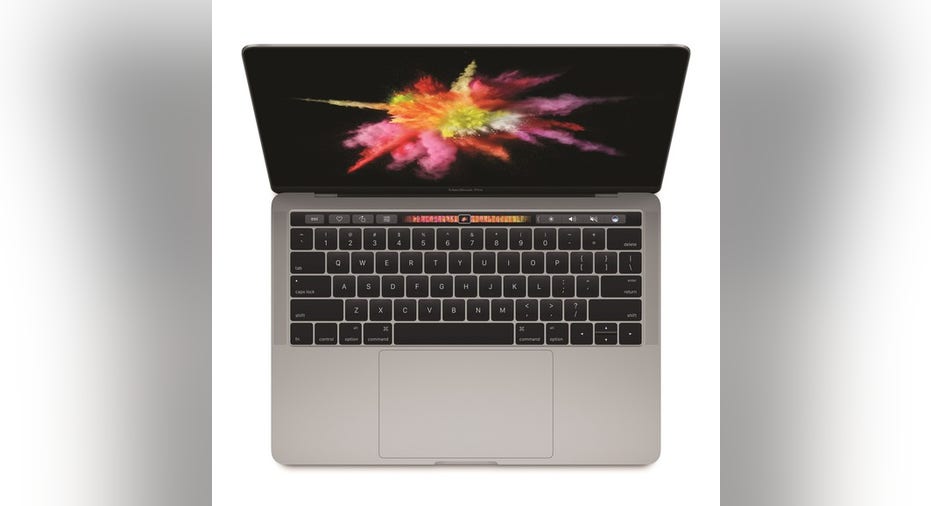Report: Apple, Inc. to Release New MacBook Pro Computers in 2017

Per a report from well-known analyst Ming-Chi Kuo with KGI Securities (via MacRumors), Apple, Inc.(NASDAQ: AAPL) is planning to launch new MacBook Pro systems during the second half of 2017. These new systems, the analyst says, could support up to 32 gigabytes of system memory -- an increase from the 16 gigabytes that the recently released models have.
Image source: Apple.
Kuo says that this memory increase "depends on whether or not [MacBook processor supplier] Intel (NASDAQ: INTC) ships Cannonlake CPU on time in 2017, which features 15-25% less power consumption of LPDDR 4, versus the existing LPDDR 3."
The analyst further goes on to explain that "If Cannonlake doesn't enter mass production as expected, the new models launched in 2H17 will adopt Coffee Lake, which continues to adopt LPDDR 3, and maximum DRAM support will remain unchanged at 16GB."
Here's why this analysis is so confusing.
Why don't the new MacBook Pro computers support 32 gigabytes of memory?
The current 13-inch and 15-inch MacBook Pro systems use Intel's sixth-generation Core processors, also widely referred to by their internal code name, Skylake.
The fact that these chips only support the older, less-efficient LPDDR3 memory type is widely believed to be the reason that Apple doesn't offer 32 gigabytes of memory in these new systems (since that much LPDDR3 would draw too much power, forcing Apple to lower its advertised battery life targets).
The idea behind this analysis seems to be that once Intel's high-performance processors begin to offer support for the newer, more-efficient LPDDR4 memory standard, Apple will be able to increase the amount of memory that it can offer in these systems without sacrificing battery life.
That's straightforward enough; what's so confusing, then?
Code name confusion
The only thing that doesn't quite make sense with Kuo's analysis is that Coffee Lake is merely the code-name for the high-performance notebook chips based on the Cannon Lake architecture (a fact first published right here at The Motley Fool).
A likely explanation for why Intel doesn't just call this product family Cannon Lake (rather than Coffee Lake) is that instead of being manufactured on Intel's 10-nanometer manufacturing technology, these processors will be built on an enhanced version of Intel's 14-nanometer technology.
In other words, Coffee Lake is fundamentally a Cannon Lake chip; if Cannon Lake supports LPDDR4 (and it is extremely likely that it does), then so will Coffee Lake.
Kuo's analysis is sound with a simple change
An argument that makes more sense is the following: If Intel can get Coffee Lake into Apple's hands soon enough, then MacBook Pro systems launched in the second half of 2017 will gain support for LPDDR4, paving the way for configurations with 32 gigabytes of memory.
If Intel can't get Coffee Lake out in that time frame, Apple must use Intel's Kaby Lake processor family to hit a second-half 2017 release schedule.
Kaby Lake uses the same fundamental chip architecture as Skylake (though the implementation of that architecture has been reworked to take advantage of an enhanced 14-nanometer process), and therefore doesn't support LPDDR4 memory.
Bummer for MacBook Pro power users
Unfortunately for potential MacBook Pro buyers eager to get their ahold of MacBook Pro computers with 32 gigabytes of memory, the latest Intel roadmap leaks show that Coffee Lake isn't due out until the second quarter of 2018.
This means that, barring a pull-in of Coffee Lake's development schedule (unlikely given Intel's track record), Apple has two choices:
- Refresh the MacBook Pro in the second half of 2017 with Kaby Lake processors with memory support topping out at 16 gigabytes; or
- Hold off on refreshing the MacBook Pro until the first half of 2018 to be able to use the newer, superior Coffee Lake processors, which could make 32 gigabyte system configurations a reality.
If Kuo is correct that new MacBook Pro computers are coming in the second half of 2017, then consumers shouldn't expect those computers to be configurable with 32 gigabytes of memory.
A secret billion-dollar stock opportunity The world's biggest tech company forgot to show you something, but a few Wall Street analysts and the Fool didn't miss a beat: There's a small company that's powering their brand-new gadgets and the coming revolution in technology. And we think its stock price has nearly unlimited room to run for early in-the-know investors! To be one of them, just click here.
Ashraf Eassa owns shares of Intel. The Motley Fool owns shares of and recommends Apple. The Motley Fool has the following options: long January 2018 $90 calls on Apple and short January 2018 $95 calls on Apple. The Motley Fool recommends Intel. Try any of our Foolish newsletter services free for 30 days. We Fools may not all hold the same opinions, but we all believe that considering a diverse range of insights makes us better investors. The Motley Fool has a disclosure policy.



















